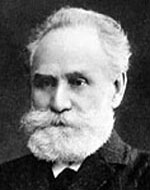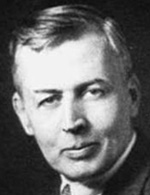Presenting History
Last ThingsSo you are done with that project, and now, what about the next one? Perhaps your last one went well. Perhaps, in general, you are very good at what you do. It is fair to take pleasure in that skill, and in its results. Often that satisfaction is all you get. As Theobald Smith once said,
The joy of research must be found in doing, since every other harvest is uncertain (Beveridge 109)
So, enjoy it. But don't bask in it. Keep your face pointed instead oward the unknown. It is the unknown that is your chief business. And toward the unknown, we may all be humble. It knows things we don't.
Pavlov recommended modesty for more practical reasons:
Do not allow haughtiness to take possession of you, or you will be obstinate where it is necessary to agree, you will refuse useful and friendly help, you will lose your objectivity (Beveridge 150)
You will disable yourself. And other people won't like it either:
Master Yang was going to Sung, and stopped for the night at an inn. The innkeeper had two concubines, one beautiful and one ugly. The ugly one was treated with respect, and the beautiful one was treated with contempt. Master Yang asked why. The servant boy said, The beautiful one thinks herself beautiful, and so we are not aware of any excellence in her. The ugly one thinks herself ugly, and so we are not aware of anything unlikeable about her.
Master Yang said, Disciples, make note of this. If you act worthily, but avoid giving the impression that you think yourself worthy, where can you go that you will not be loved? (Jwangdz 20:9)
Flaunting excellence disables excellence. And why? Because your excellence is your capacity to be useful to others. If you turn it on yourself as a spotlight, you have lost the whole point. Be excellent, but don't regard excellence as an achievement. Don't intimidate. Don't "Herr Professor Doktor." Don't assume the toga of authority. Don't twine laurel. Regard what you know chiefly as an opportunity to find out something else, and regard all you know as something to share with others.
And finally - it is our last suggestion to you - be decently hesitant about how good that something else may be. Historical competence comes after years of work. So does senility. How soon after the one the other may arrive cannot be known in advance. Let the works of other people's dotage stand as a warning. Remember Einstein; remember Duyvendak. Have someone check your latest brainstorm before publishing it. Listen to what they say. It may be that the best use of your hard-won eminence is to encourage the next generation, from a decent and noncommittal distance. Feynman put it all too clearly:
Of course, you only live one life, and you make all your mistakes, and learn what not to do, and that's the end of you.
The interval between getting it and losing it should be used wisely. This is difficult, as all last things are difficult. Fortunate are those who find in themselves the passion to acquire it, the equanimity to use it, and the grace at last to relinquish it, or to recognize that time and chance have relinquished it for them.
17 Feb 2007 / Contact The Project / Exit to Outline Index Page

